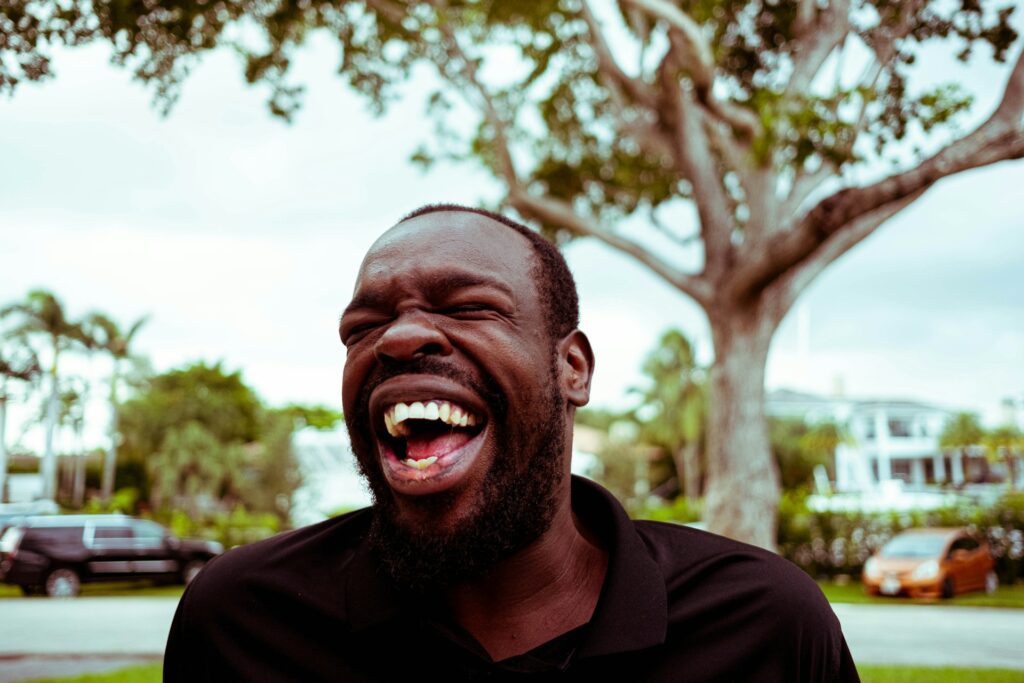Denial doesn’t always mean straight up pretending nothing’s wrong.

Sometimes, it looks like minimising, distracting, or convincing yourself you’re just being dramatic. It can be surprisingly easy to ignore your own mental health struggles, especially when you’re functioning on the surface. You might be getting through the day, ticking boxes, even laughing with friends, but deep down, something doesn’t feel right.
These signs don’t mean you’re broken; they just mean there might be more going on than you’re admitting to yourself. That being said, acknowledging it is often the first real step toward feeling better.
1. You keep saying, “I’m just tired.”

It’s the easiest explanation, and sometimes it’s true. That being said, if you’ve been tired for weeks, even when you’ve technically had enough rest, there might be something emotional draining your energy behind the scenes. That kind of tired doesn’t go away with a nap. It lingers in your bones, makes everything feel like effort, and often points to deeper emotional or mental fatigue that needs your attention.
2. You downplay everything with jokes.

Humour can be a brilliant coping tool, but if everything about your emotions becomes a punchline, that can be a subtle way of avoiding real vulnerability. You might not even realise you’re doing it, but if people only ever hear the sarcastic version of your truth, it’s worth asking whether you feel safe admitting how hard things really are.
3. You keep telling yourself that “it’s not that bad.”

Maybe it’s not, but comparing your struggles to someone else’s worse situation doesn’t make your pain disappear. It just stops you from addressing what’s hurting you. Dismissing your experience because “other people have it worse” is a classic form of denial. Your feelings are still valid, even if someone else is going through something bigger or louder.
4. You can’t sit still without getting uncomfortable.

If your mind races the second you slow down, or you avoid silence because it feels too loud inside your head, that’s usually a sign something deeper is trying to get your attention. Busyness can become a distraction from your own thoughts. When stillness feels unbearable, it often means there are feelings you’re pushing down without realising it.
5. You always need a new project or distraction.

You might bounce from task to task, goal to goal, or obsession to obsession. It can feel productive, even exciting, but sometimes it’s a way to avoid looking inward. If your sense of peace completely disappears the second there’s nothing to “work on,” it might be time to check in with what’s really going on underneath the constant motion.
6. You get irritated over tiny things.

That low tolerance, the short fuse, the way one small comment sets you off—those things often point to something bubbling beneath the surface. Irritability is a common way mental strain shows up. You might think you’re just in a mood or dealing with annoying people. But when your reactions feel disproportionate to what’s actually happening, your mental health might be asking for help.
7. You haven’t felt properly excited about anything in a while.

Even if life looks fine on paper, a quiet kind of numbness can creep in. You stop looking forward to things, and joy feels like something that belongs to other people. This isn’t about being ungrateful; it’s often a sign of burnout, depression, or emotional exhaustion. When nothing feels meaningful, it’s usually time to pause and check what’s weighing you down.
8. You say “I’m fine” out of habit.

The words come out so fast you barely think about them. However, deep down, you know they’re automatic—a default response that lets you skip past vulnerability. If you always brush things off with the same script, it might be worth asking whether you’re even being honest with yourself anymore. You don’t have to fall apart to need support.
9. You struggle to describe how you’re feeling.

If someone asks how you’re doing and your mind goes blank, that doesn’t mean that nothing’s wrong. It might just mean you’re disconnected from your emotions. Not having the words doesn’t make your experience less real. It just means you’ve probably spent a long time avoiding those feelings, and now they feel distant or confusing.
10. You avoid people who ask real questions.

It’s one thing to cancel plans because you’re tired. However, if you find yourself avoiding people who actually check in on you, it might be because you don’t want to answer honestly. When you’re in denial, surface-level chats feel easier. Deep conversations feel risky because part of you knows someone might spot the truth you’re not ready to face yet.
11. You over-function to avoid feeling.

You’re the reliable one, the helper, the person who keeps it together. However, if you’re always doing, fixing, or performing, it might be less about thriving and more about avoiding stillness. Over-functioning is a subtle form of denial. You look strong on the outside, but inside, you’re holding everything together with a shaky kind of pressure you’re scared to drop.
12. You constantly minimise what you’re going through.

Even when someone shows concern, you wave it off. “It’s nothing.” “I’m just being silly.” You downplay your emotions before they can even surface properly. This is often a learned habit, especially if your feelings weren’t taken seriously growing up. But the more you minimise, the harder it becomes to truly process what’s there.
13. You tell yourself you’re just being lazy.

When your motivation disappears and your energy tanks, your inner critic often fills in the blanks with blame. You call yourself lazy when, in reality, your brain and body are probably overwhelmed. That self-judgement keeps you stuck. It hides the real issue behind shame, making it harder to ask for support, even when you genuinely need it.
14. You can’t remember the last time you felt emotionally safe.

It’s not just about being “happy.” Emotional safety means feeling calm in your body, not constantly bracing for impact, and being able to be honest with yourself and other people. If that kind of peace feels like a distant concept, or something you’ve never really known, it’s not your fault. But it might be time to explore why you’ve learned to live without it for so long.


